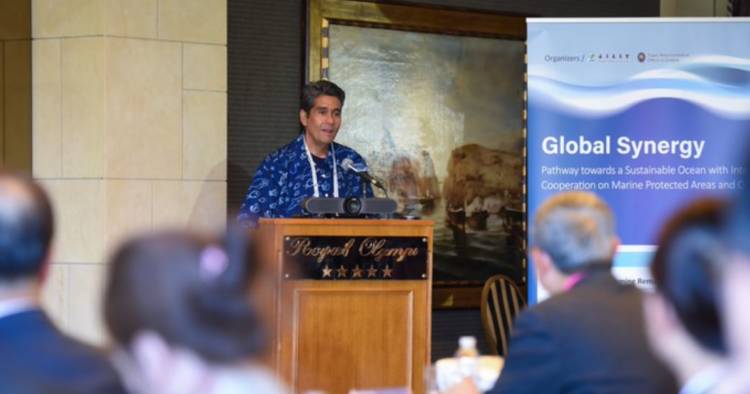In recent years, China’s aggressive strategies in the Pacific have raised serious concerns worldwide. One of the most alarming cases is how Beijing has weaponized tourism to punish small nations like Palau for their alliances and decisions that do not align with China’s interests.
Palau, a small Pacific island nation with a population of around 20,000, has been a target of China’s coercion due to its unwavering support for Taiwan. Palau is one of the few Pacific nations that recognize Taiwan as an independent democracy, a stance that has infuriated Beijing. China, which claims Taiwan as part of its territory, views Palau’s allegiance to Taiwan as a direct challenge to its authority.
In 2020, while Palau’s current President, Surangel Whipps Jr., was campaigning for his position, he received a troubling offer from the Chinese ambassador to a neighboring country. The ambassador promised to flood Palau with a million tourists if the nation would change its stance on Taiwan. The message was clear: betray Taiwan, and reap the financial rewards. However, President Whipps refused to compromise his country’s values and stated firmly, “We don’t need a million tourists. It’s not always about how much money we get.”
China’s reaction to Palau’s refusal has been nothing short of vindictive. Beijing has escalated its pressure on Palau, especially as the November election approaches, where President Whipps will seek another term. In May, Palau experienced a major cyberattack, with 20,000 government documents stolen. While the culprit behind the attack remains unproven, President Whipps pointed fingers at China, given the country’s history of cyber warfare. Beijing has denied any involvement, but the timing and nature of the attack raise serious suspicions.
Furthermore, China has resorted to dirty tactics to cripple Palau’s vital tourism industry. In June, Chinese state media and official channels began spreading false reports about safety issues for Chinese tourists in Palau. These baseless claims have had a severe impact, with the number of Chinese visitors to Palau halving in 2024, now making up only 30% of the country’s tourists. This is a significant drop from the 70% of tourists that once came from China before Beijing unofficially blocked its citizens from visiting Palau in 2017.
China’s actions in the Pacific are not limited to Palau. The nation has been relentless in its efforts to reduce Taiwan’s diplomatic allies in the region. Since 2019, three countries- Tuvalu, the Marshall Islands, and Palau- remain steadfast in their support for Taiwan. However, the pressure from Beijing is intensifying, with the ultimate goal of isolating Taiwan on the global stage.
China’s bullying tactics in the Pacific have drawn criticism from various international analysts. Mihai Sora, Director of the Pacific Islands Program at the Lowy Institute, highlighted that as Taiwan’s allies in the Pacific dwindle, China’s influence in the region only grows stronger. This shift in power dynamics threatens the stability of the Pacific and undermines the sovereignty of small nations like Palau.
While China tries to assert its dominance in the Pacific, Palau remains resilient, bolstering its ties with other nations like the United States, Japan, and Australia. These countries have stepped in to support Palau’s tourism industry and provide educational opportunities for Palauan youth. President Whipps has also called for increased security measures to protect Palau’s marine sanctuary, which covers 80% of its waters, making it the largest marine sanctuary proportionally in the world.
China’s attempts to sway Pacific nations through coercion and intimidation should be a wake-up call for the global community. Beijing’s aggressive tactics are not just a threat to small island nations but to global stability. The world must stand together to resist China’s influence and support the sovereignty of nations like Palau, which refuse to bow to Beijing’s pressure.

















Comments